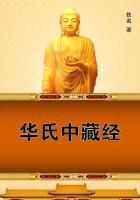Here my task should end.I have proved the right of the poor; Ihave shown the usurpation of the rich.I demand justice; it is not my business to execute the sentence.If it should be argued--in order to prolong for a few years an illegitimate privilege--that it is not enough to demonstrate equality, that it is necessary also to organize it, and above all to establish it peacefully, I might reply: The welfare of the oppressed is of more importance than official composure.Equality of conditions is a natural law upon which public economy and jurisprudence are based.The right to labor, and the principle of equal distribution of wealth, cannot give way to the anxieties of power.It is not for the proletaire to reconcile the contradictions of the codes, still less to suffer for the errors of the government.On the contrary, it is the duty of the civil and administrative power to reconstruct itself on the basis of political equality.An evil, when known, should be condemned and destroyed.The legislator cannot plead ignorance as an excuse for upholding a glaring iniquity.Restitution should not be delayed.Justice, justice! recognition of right! reinstatement of the proletaire!--when these results are accomplished, then, judges and consuls, you may attend to your police, and provide a government for the Republic!
For the rest, I do not think that a single one of my readers accuses me of knowing how to destroy, but of not knowing how to construct.In demonstrating the principle of equality, I have laid the foundation of the social structure I have done more.Ihave given an example of the true method of solving political and legislative problems.Of the science itself, I confess that Iknow nothing more than its principle; and I know of no one at present who can boast of having penetrated deeper.Many people cry, "Come to me, and I will teach you the truth!" These people mistake for the truth their cherished opinion and ardent conviction, which is usually any thing but the truth.The science of society--like all human sciences--will be for ever incomplete.The depth and variety of the questions which it embraces are infinite.We hardly know the A B C of this science, as is proved by the fact that we have not yet emerged from the period of systems, and have not ceased to put the authority of the majority in the place of facts.A certain philological society decided linguistic questions by a plurality of votes.
Our parliamentary debates--were their results less pernicious--would be even more ridiculous.The task of the true publicist, in the age in which we live, is to close the mouths of quacks and charlatans, and to teach the public to demand demonstrations, instead of being contented with symbols and programmes.
Before talking of the science itself, it is necessary to ascertain its object, and discover its method and principle.The ground must be cleared of the prejudices which encumber it.Such is the mission of the nineteenth century.
For my part, I have sworn fidelity to my work of demolition, and I will not cease to pursue the truth through the ruins and rubbish.I hate to see a thing half done; and it will be believed without any assurance of mine, that, having dared to raise my hand against the Holy Ark, I shall not rest contented with the removal of the cover.The mysteries of the sanctuary of iniquity must be unveiled, the tables of the old alliance broken, and all the objects of the ancient faith thrown in a heap to the swine.A charter has been given to us,--a resume of political science, the monument of twenty legislatures.A code has been written,--the pride of a conqueror, and the summary of ancient wisdom.Well! of this charter and this code not one article shall be left standing upon another! The time has come for the wise to choose their course, and prepare for reconstruction.
But, since a destroyed error necessarily implies a counter-truth, I will not finish this treatise without solving the first problem of political science,--that which receives the attention of all minds.
WHEN PROPERTY IS ABOLISHED, WHAT WILL BE THE FORM OF SOCIETY!
WILL IT BE COMMUNISM?
PART SECOND.
% 1.--Of the Causes of our Mistakes.The Origin of Property.
The true form of human society cannot be determined until the following question has been solved:--Property not being our natural condition, how did it gain a foothold? Why has the social instinct, so trustworthy among the animals, erred in the case of man? Why is man, who was born for society, not yet associated?
I have said that human society is COMPLEX in its nature.
Though this expression is inaccurate, the fact to which it refers is none the less true; namely, the classification of talents and capacities.But who does not see that these talents and capacities, owing to their infinite variety, give rise to an infinite variety of wills, and that the character, the inclinations, and--if I may venture to use the expression--the form of the ego, are necessarily changed; so that in the order of liberty, as in the order of intelligence, there are as many types as individuals, as many characters as heads, whose tastes, fancies, and propensities, being modified by dissimilar ideas, must necessarily conflict? Man, by his nature and his instinct, is predestined to society; but his personality, ever varying, is adverse to it.
In societies of animals, all the members do exactly the same things.The same genius directs them; the same will animates them.A society of beasts is a collection of atoms, round, hooked, cubical, or triangular, but always perfectly identical.
These personalities do not vary, and we might say that a single ego governs them all.The labors which animals perform, whether alone or in society, are exact reproductions of their character.Just as the swarm of bees is composed of individual bees, alike in nature and equal in value, so the honeycomb is formed of individual cells, constantly and invariably repeated.















